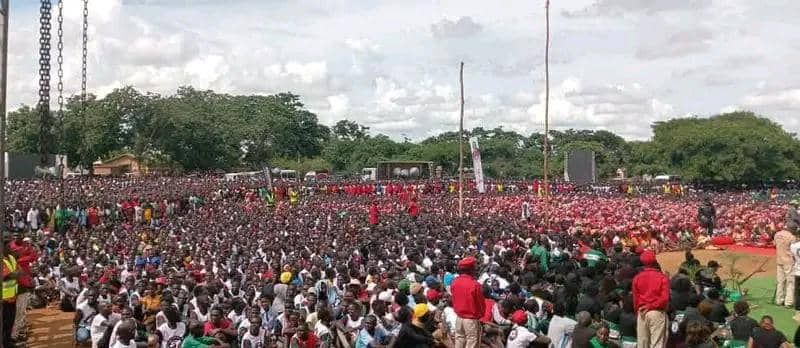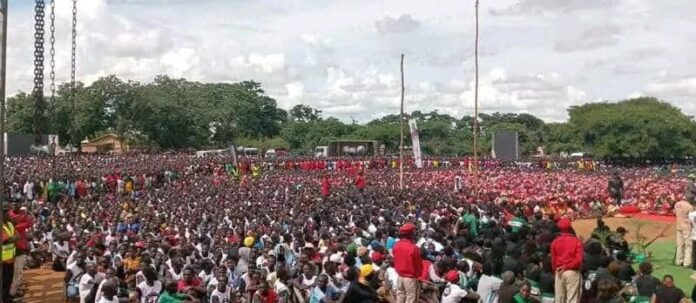By Burnett Munthali
The Malawi Congress Party (MCP) Youth Wing has made bold claims regarding the turnout at a recent political rally in Kasiya, Lilongwe, stating that more than two million people attended the event. The statement was shared through their official Facebook page, where they reinforced their confidence in the party’s dominance by declaring, “BOMA NDI LOMWELI PALIBE KUSINTHA”—which translates to “This is the government; nothing will change.”
The rally in Kasiya, a strategic political area in Lilongwe, was expected to showcase MCP’s continued influence as the ruling party. If the reported figures are accurate, it would mark one of the largest political gatherings in the country’s recent history. However, the claim of over two million attendees has sparked debate among political analysts and opposition supporters, with many questioning the feasibility of such a massive turnout.

MCP remains one of Malawi’s most historically significant parties, having led the country to independence under the leadership of Dr. Hastings Kamuzu Banda. Under President Lazarus Chakwera’s administration, the party has continued to assert its presence in both urban and rural areas, particularly in the Central Region, which is traditionally an MCP stronghold.
The statement from the Youth Wing is likely a show of strength ahead of the next general elections, as the political landscape continues to shift with various opposition parties, including the Democratic Progressive Party (DPP) and the United Transformation Movement (UTM), seeking to challenge MCP’s dominance.
Despite the enthusiastic claims, independent verification of the actual attendance at the rally remains unclear. Political rallies in Malawi often attract significant crowds, but exaggerated figures have historically been used as a tool for political propaganda.
The statement, “BOMA NDI LOMWELI PALIBE KUSINTHA,” suggests that MCP’s youth structures are confident about retaining power, emphasizing stability and continuity in governance. However, with the political climate in Malawi evolving and opposition parties mobilizing support, the party’s ability to maintain its dominance will ultimately be tested at the ballot box.
As the country inches closer to another election cycle, such rallies and public displays of support will play a crucial role in shaping voter perceptions. Whether the MCP can convert these large gatherings into actual votes remains a key question in Malawi’s political discourse.



